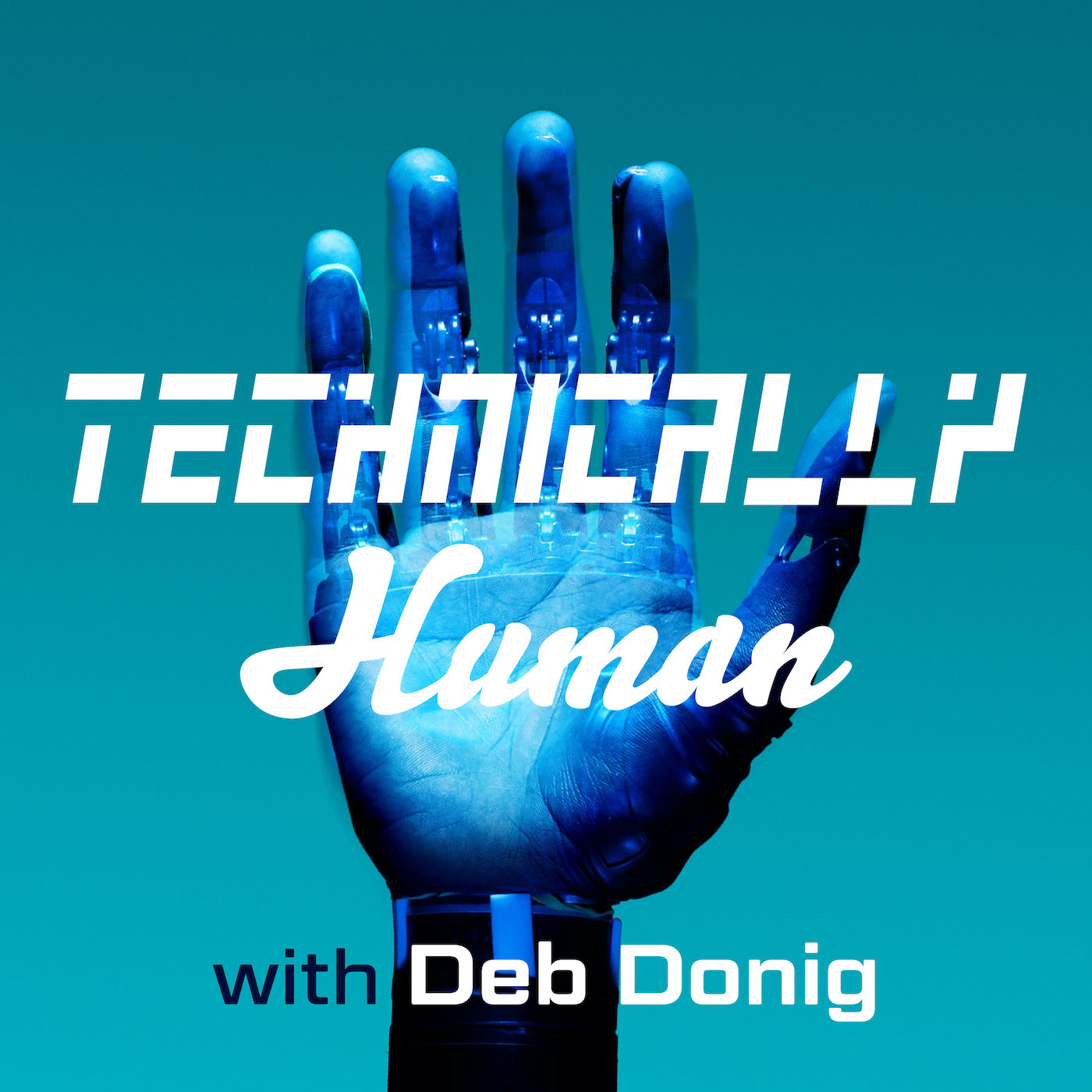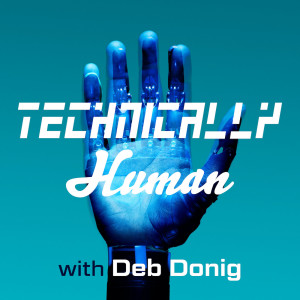
Technically Human is a podcast about ethics and technology where I ask what it means to be human in the age of tech. Each week, I interview industry leaders, thinkers, writers, and technologists and I ask them about how they understand the relationship between humans and the technologies we create. We discuss how we can build a better vision for technology, one that represents the best of our human values.
Episodes

Friday Nov 13, 2020
Friday Nov 13, 2020
Malka Older moves between the practice of on-the-ground disaster relief work and the practice of in-the-mind science fiction writing. She converges her experience with real-life dystopias with the imagined dystopias of science-fiction.
In the episode, I ask Malka about how these areas of her work blend together, how she understands the boundaries and the interplay between the real and the imaginary, and the role that science fiction plays in our understanding of tech—its promises and its perils.
We talk about use of science fiction in helping us avoid disasters, the relationship between tech, science fiction, and democracy, and Malka shares her predictions about the future of tech, democracy, and human rights as we move into the future of the 21st century.
Malka Older is a writer, academic, and aid worker. She is currently a Faculty Associate at Arizona State University’s School for the Future of Innovation in Society and an Associate Researcher at the Centre de Sociologie des Organisations. Her science-fiction political thriller Infomocracy was named one of the best books of 2016 by Kirkus, Book Riot, and the Washington Post. She has written opinion pieces for the New York Times, The Nation, Foreign Policy, and NBC Think.
She has more a decade of experience in humanitarian aid and development, ranging from field level experience as a Head of Office in Darfur to supporting global programs and agency-wide strategy as a disaster risk reduction technical specialist. Her doctoral work on the sociology of organizations at the Institut d’Études Politques de Paris (Sciences Po), completed in 2019, explored the dynamics of multi-level governance and disaster response using the cases of Hurricane Katrina and the Japan tsunami of 2011. As part of this work she has been selected as a visiting scholar at Columbia University, on an Alliance Grant, and at the Fletcher School of International Affairs at Tufts University. She has an undergraduate degree in literature from Harvard and a Masters in international relations and economics from the School of Advanced International Studies (SAIS) Johns Hopkins University.
She was named Senior Fellow for Technology and Risk at the Carnegie Council for Ethics in International Affairs for 2015, and has conducted research for the French Institut de Radioprotection et de Sûreté Nucléaire (IRSN) on the human and organizational factors involved in the Fukushima Dai-Ichi crisis. Her research interests include intra-governmental relations in crises; the paradox of well-funded disaster responses; measurement and evaluation of disaster responses; and the effects of competition among actors in humanitarian aid.
This episode was produced by Matthew Perry.

No comments yet. Be the first to say something!